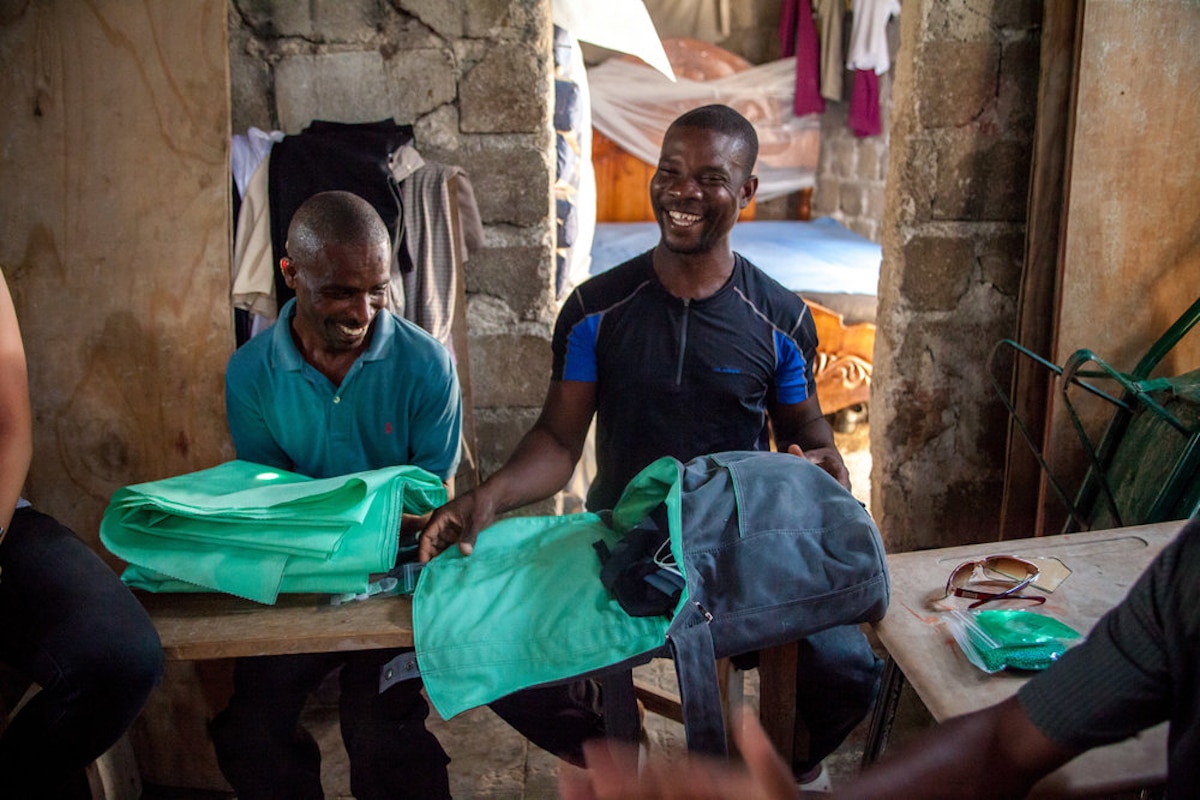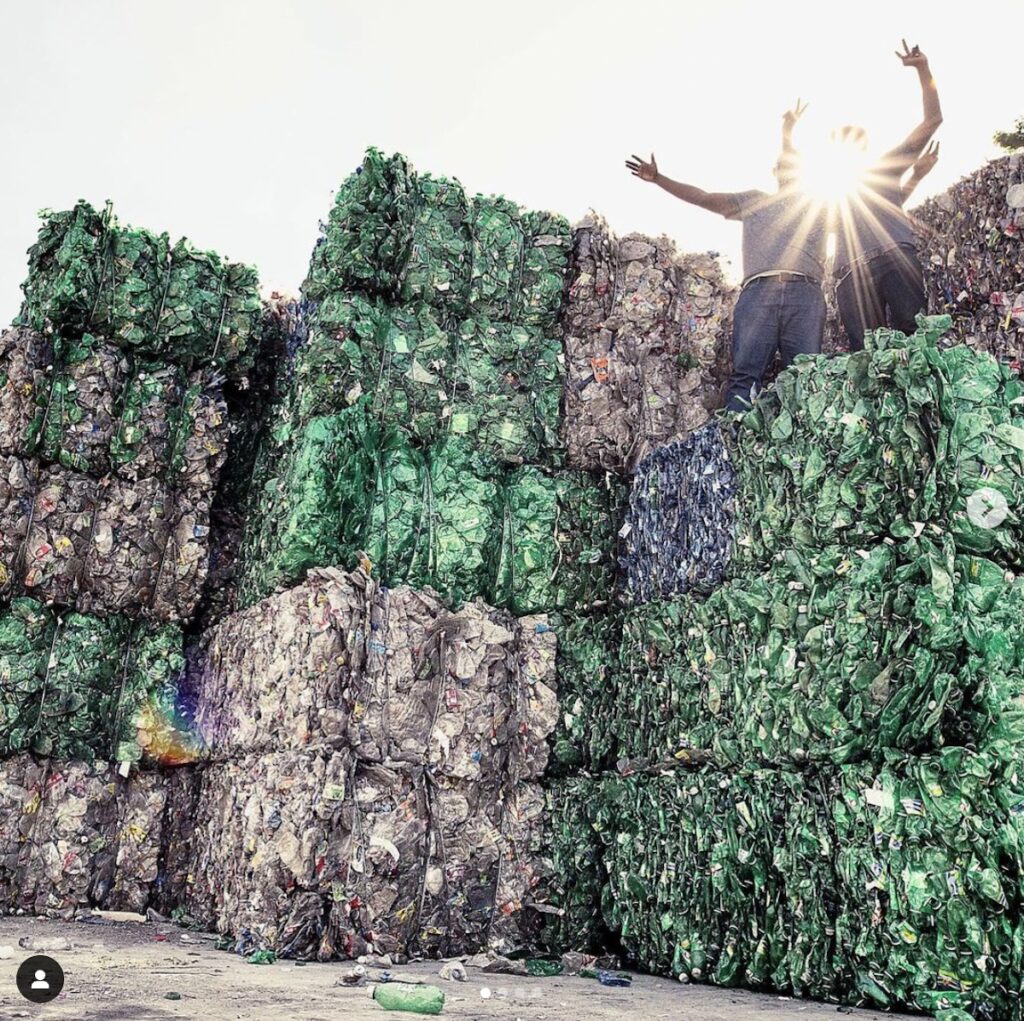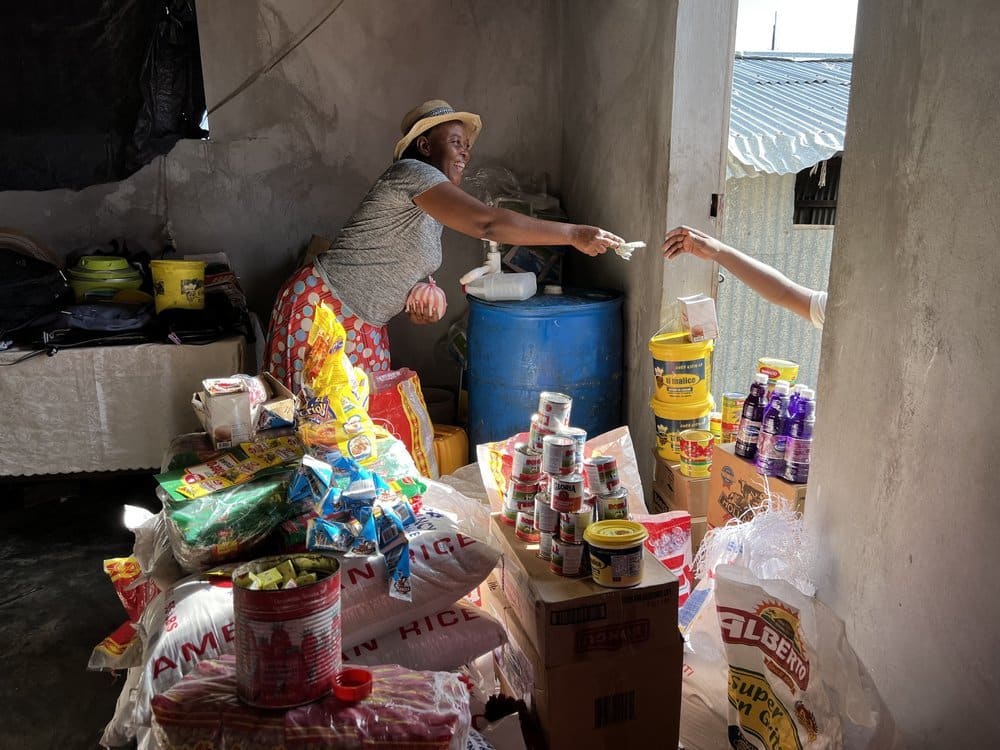Solving the Plastic Crisis Through Community Empowerment

 Why you can trust us
Why you can trust us
Founded in 2005 as an Ohio-based environmental newspaper, EcoWatch is a digital platform dedicated to publishing quality, science-based content on environmental issues, causes, and solutions.
Of the 8.3 metric tons of plastic produced in this world to date, 6.3 billion tons of that is trash, and less than 10% of it is recycled, which has created a global crisis, not just with the environment, but our health.
Microplastics — tiny pieces of plastic debris, which result from the disposal and breakdown of consumer products and industrial waste — are now ever-present pollutants now found to be in most places in the world, from marine life to the top of Mt. Everest, and now our bloodstreams.
Plastic pollution also disproportionately affects marginalized communities and communities living near plastic waste sites.
According to a report from the United Nations, polluting facilities and industries — particularly the companies drilling for the oil that helps make plastic — are often placed in vulnerable communities, who are now subject to toxins from plastic incineration as well as other hazards from disposal. Those who rely on marine life for food are also ingesting toxins from contaminated water sources.
Ground soil in these communities is also being contaminated, making it difficult to rely on agriculture for economic stability and local food security.
Some companies, organizations, policymakers and governments are working with both national and regional initiatives, many of which are led by the Ellen MacArthur Foundation, to create a more circular economy, and have an industry-scale change to end plastic pollution.
Currently, several brands are using repurposed plastic bottles in their products to help divert the waste stream, particularly in fashion, which is a large source of plastic waste pollution.
However, according to Ian Rosenberger, CEO of Thread International, it’s going to take more than companies diverting waste streams to solve the plastic crisis — it’s going to take empowering low-income communities in order to create sustainable change.
Thread is one of the companies that turns plastic waste from developing countries into fabric and other materials for big brands, as well as its own recycled Day Owl backpacks.
Alongside its sister company WORK, they have founded the First Mile Initiative, which helps bring full transparency of who and what happens to the first mile of recycled waste supply chains, and holistically supports waste collectors in Haiti, Honduras, and Taiwan, while connecting brands to the communities they positively impact.

First Mile’s campaign to make plastic waste a resource had turned more than 100 million bottles into shoes, clothes, backpacks, and printer cartridges by July 15, 2020. firstmileimpact / Instagram
And the companies’ support doesn’t just end at the waste collectors and workers, but involves their families and others in the communities in which they operate.
“Environmental justice cannot be solved in the absence of social justice,” said Vivien Luk, executive director of WORK.
Before expanding through First Mile, WORK’s operations began in Haiti, where they continue to follow their mission to “accompany families out of poverty through good, dignified jobs,” while also working to remove roadblocks to their success.
With an impact team based in Los Angeles, Pittsburgh, and Port-au-Prince, WORK ensures open access to medical care, access to education for children, as well as giving families other tools to empower themselves towards long-term independence — and they commit to the families entirely until they are no longer needed.
“[We’ve] decided to grow the organization in accordance with that ideal of serving a person completely instead of serving a million of them an inch deep,” said Rosenberger.
He added that they don’t just go into any communities thinking they have the answers. They walk in asking how they can be allies to help people with whatever they are going through with the end goal being full agency and dignity.
“By and large, they’re incredible business people, entrepreneurs, and workers [that I’ve met],” he says.
How It Began
The companies grew out of an initial trip Rosenberger took to Port-au-Prince in 2010 to help out with disaster relief after a catastrophic 7.0 earthquake destroyed buildings and homes, displacing many and killing more than 200,000 people.
On that trip he met a young man who needed a life-saving medical procedure, and asked Rosenberger if he could help. Rosenberger and his friends then committed to raising money and finding resources, and were eventually able to get him to the United States where he could get the procedure done.
Afterwards, when Rosenberger accompanied him home, he felt he needed to do more.
Noticing all of the plastic waste and how few jobs there were, when he later discovered that plastic bottles could be transformed into fabric, he and his team of friends then reached out to a bunch of global brands trying to convince them to build factories in Haiti.
After none of the companies took them seriously, they decided to make fabric out of waste on their own.
By 2013, Thread became a certified B Corp business — which means they met the standards of performance, accountability and transparency in contributing to an equitable and regenerative economy. It would still be three years before 2015, when apparel and footwear company Timberland signed on to be their first brand collaboration, making a line of boots and bags with Thread’s material.
They now also work with Ralph Lauren, Marmot, Reebok, Puma, Aerie, Converse and others.
As they were supporting the waste collectors and building the company, Thread and Work’s team also expanded from taking care of that one young man to helping meet the needs of five families which they stuck with for four years.

According to Luk, they hadn’t yet had a solid model, and had no business taking on any more families until they had one.
Now their endeavors encompass 700 families across Haiti.
As for plastic, they’ve since diverted more than 6 million pounds of plastic waste from landfills and oceans, with more than 130 million plastic bottles recycled into useful products while helping people earn a dignified income.
While other similar initiatives have also taken place in Haiti, none have been so intimately involved with the families, and mostly incentivized waste picking with money.
However, there have been a lot of setbacks in the last few years, part of which involved COVID, which put a halt to Run Across Haiti, one of their largest fundraisers, and forced them into layoffs. They were eventually able to hire everyone back after the company pivoted to making personal protective equipment for frontline healthcare workers.
Then there was the assassination of the Haiti’s president last July, which has made things complicated and dangerous for the waste collectors and their other families, but they are enduring and figuring out systems amidst the chaos anyway, said Luk.
“We’re trying to be as supportive of our families and workers as we can,” she added.
Another setback came prior to the assasination, with a 7.2 magnitude earthquake that devastated the southwestern region of the country. Some of their waste collectors were in the middle of the devastation.
According to Rosenberger, the tech company HP — which has been a brand partner since 2016 and utilizes the company’s recycled material in their ink cartridges — donated some of the money necessary to get a team on the ground to see what happened, as well as helped airlift 15,000 pounds of medical supplies to those affected.
The team to respond were people who, ten years ago, were part of Thread and WORK’s early support programming, now empowered enough to lend help themselves.
“They went to [these peoples’] homes in the same way that my friends and I went to their homes,” Rosenberger said.
Moving Forward
Thread and WORK are currently wanting to expand First Mile in Asia, Africa, and in parts of the United States, where they are specifically looking at how waste impacts Indigenous communities and how proper waste management might help benefit them as well.
In the meantime, Rosenberger said he’s attended several conferences where many companies and organizations talk about wanting to make systemic changes, but say the process will be “complex,” which he feels is a lie.
He believes that it’s simple and involves changing business models, and is necessary particularly for chemical companies, petrochemical companies and oil producers.
A 2021 study published by the Mindaroo Foundation, said that only 100 companies produce 90% of all single-use plastic-waste generated globally, with ExxonMobil topping the list.
Though frustrated, Rosenberger said complaining about these companies on Twitter or calling them evil doesn’t work when it comes to creating change and he doesn’t want to spend the next 20 years locking horns with companies much larger than him, either.
“We are at the point where you have to love the people you are built to despise. You have to love what they stand for. In loving all of those things, [maybe you] can come up with a solution you both believe in,” he said.
He added: “How do we figure out a way to make those people feel like it’s okay to come into the light? If we [are able to] do that, it’s game over.”
Subscribe to get exclusive updates in our daily newsletter!
By signing up, you agree to the Terms of Use and Privacy Policy & to receive electronic communications from EcoWatch Media Group, which may include marketing promotions, advertisements and sponsored content.

 233k
233k  41k
41k  Subscribe
Subscribe 




